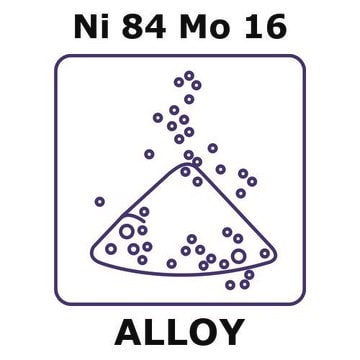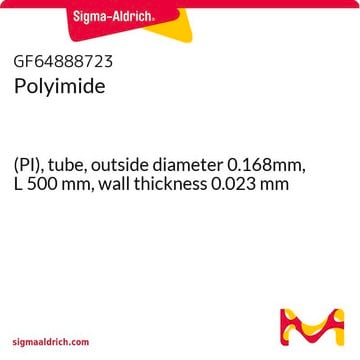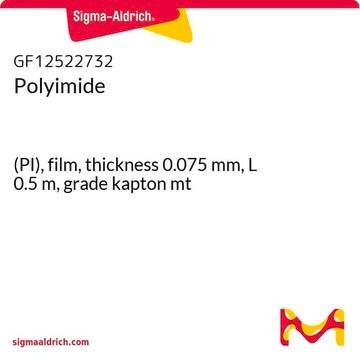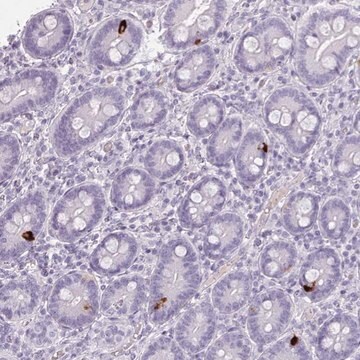GF39871895
Molybdenum
foil, 0.5m coil, thickness 0.05mm, annealed, 99.9%
Synonym(s):
Molybdenum, MO000250
Sign Into View Organizational & Contract Pricing
All Photos(2)
About This Item
Empirical Formula (Hill Notation):
Mo
CAS Number:
Molecular Weight:
95.94
MDL number:
UNSPSC Code:
12141727
PubChem Substance ID:
NACRES:
NA.23
Recommended Products
Assay
99.9%
form
foil
manufacturer/tradename
Goodfellow 398-718-95
resistivity
5.0 μΩ-cm, 20°C
L × thickness
0.5 m × 0.05 mm
bp
4612 °C (lit.)
mp
2617 °C (lit.)
density
10.3 g/mL at 25 °C (lit.)
SMILES string
[Mo]
InChI
1S/Mo
InChI key
ZOKXTWBITQBERF-UHFFFAOYSA-N
General description
For updated SDS information please visit www.goodfellow.com.
Legal Information
Product of Goodfellow
Certificates of Analysis (COA)
Search for Certificates of Analysis (COA) by entering the products Lot/Batch Number. Lot and Batch Numbers can be found on a product’s label following the words ‘Lot’ or ‘Batch’.
Already Own This Product?
Find documentation for the products that you have recently purchased in the Document Library.
Charles F Baker et al.
Dalton transactions (Cambridge, England : 2003), (9)(9), 1298-1303 (2004-07-15)
New molybdenum(VI) nitride oxides were synthesised by the reaction of strontium nitride and calcium nitride with molybdenum foil at high temperature in sealed stainless steel crucibles. The reactions yielded single crystalline products determined by X-ray diffraction to form complex structures
J G Watkins et al.
The Review of scientific instruments, 79(10), 10F125-10F125 (2008-12-03)
Two modular arrays of Langmuir probes designed to handle a heat flux of up to 25 MW/m(2) for 10 s exposures have been installed in the lower divertor target plates of the DIII-D tokamak. The 20 pyrolytic graphite probe tips
Dattatray J Late et al.
Nanotechnology, 19(26), 265605-265605 (2008-07-02)
Nanocrystalline lanthanum hexaboride (LaB(6)) films have been deposited on molybdenum foil by the pulsed laser deposition (PLD) technique. The as-deposited films were characterized by x-ray diffraction (XRD), scanning electron microscopy (SEM) and atomic force microscopy (AFM). The XRD pattern shows
Michael N Evans
Rapid communications in mass spectrometry : RCM, 22(14), 2211-2219 (2008-06-11)
A reactor for converting cellulose into carbon monoxide for subsequent oxygen isotopic analysis via continuous flow isotope ratio mass spectrometry is described. The system employs an induction heater to produce temperatures >or=1500 degrees C within a molybdenum foil crucible positioned
Lidia Regoli et al.
The Science of the total environment, 435-436, 96-106 (2012-08-01)
In a regulatory context, bioaccumulation or bioconcentration factors are used for considering secondary poisoning potential and assessing risks to human health via the food chain. In this paper, literature data on the bioaccumulation of molybdenum in the aquatic organisms are
Our team of scientists has experience in all areas of research including Life Science, Material Science, Chemical Synthesis, Chromatography, Analytical and many others.
Contact Technical Service





